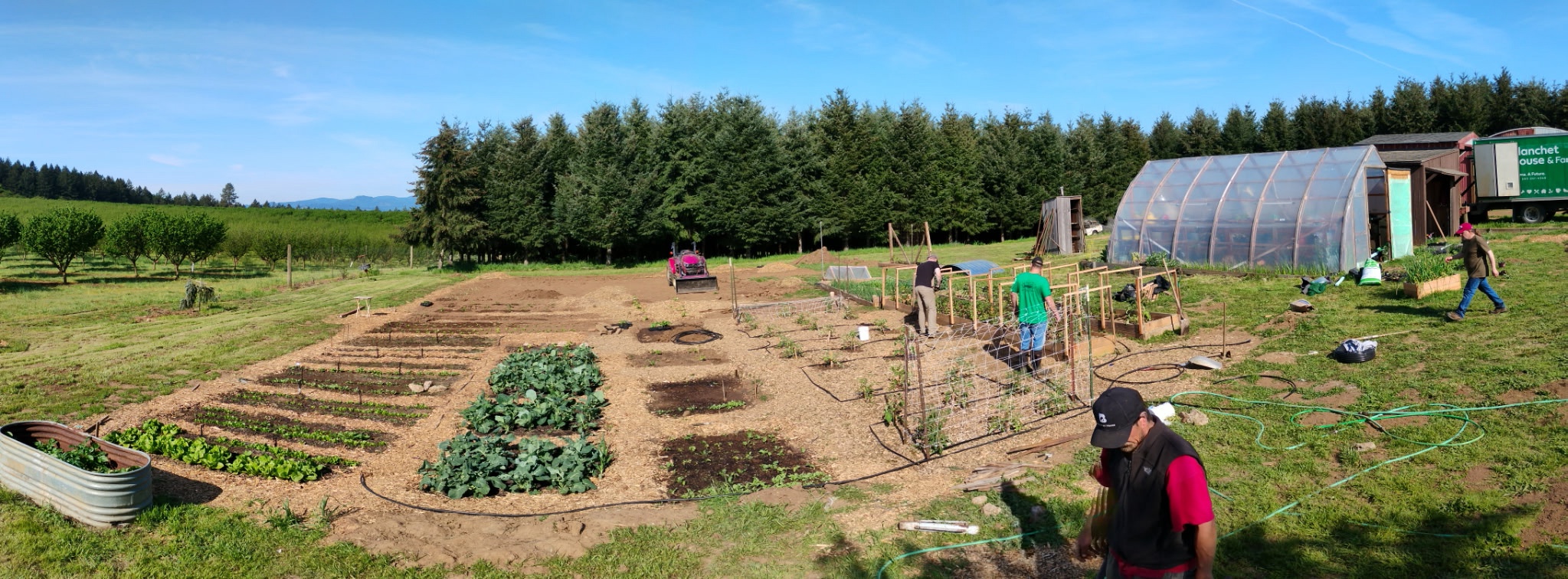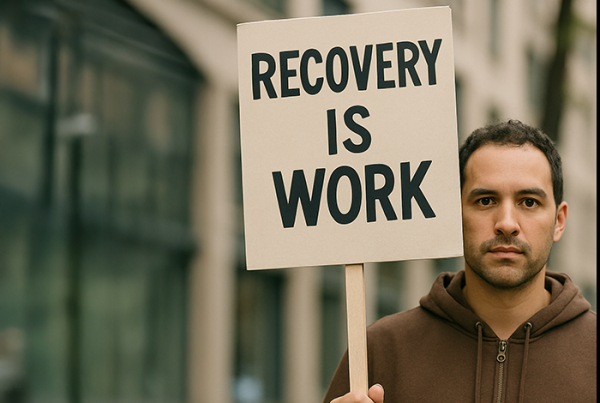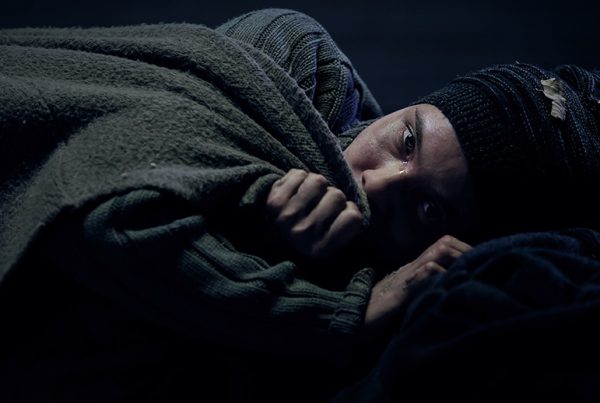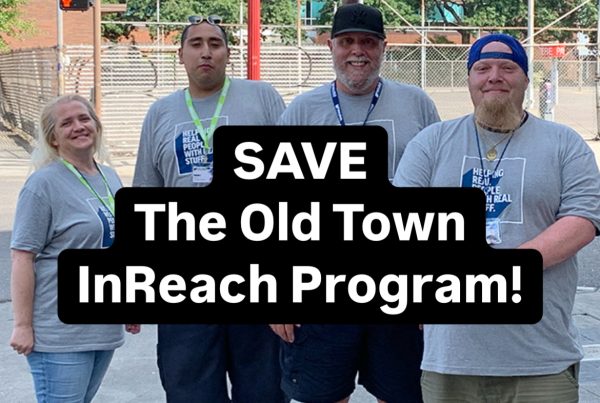By Gabby Thuillier, Social Enterprise Manager
Gardening and addiction recovery have a lot in common. Both take time, care, commitment, and the right environment to grow and heal. This connection is proven every day at Blanchet Farm in Oregon, where residents in recovery build skills, reconnect with the land, and grow nourishing food through gardening.
We strive to offer opportunities for hands-on work outdoors while also being thoughtful stewards of the land we’re entrusted with.
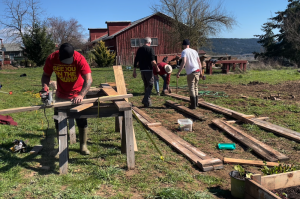
Blanchet Farm residents built raised beds for the garden.
Gardening offers people a way to experience and take part in recovery. Planting seeds, caring for growing plants, and harvesting food can be both healing and deeply symbolic for those working to rebuild their lives. It also provides a meaningful sense of purpose and accomplishment.
“I find peace in the garden and I always have,” says W.D., a current Blanchet Farm resident. “I love being outside and working on something. You learn a lot of valuable skills along with it. You also get an amazing return.”
The vegetable garden at Blanchet Farm is well underway thanks to the leadership of a current resident with a green thumb. So far this spring, residents have planted greens, carrots, radishes, and onions, just to name a few. And several varieties of tomatoes are already starting to perk up around custom-built trellises.
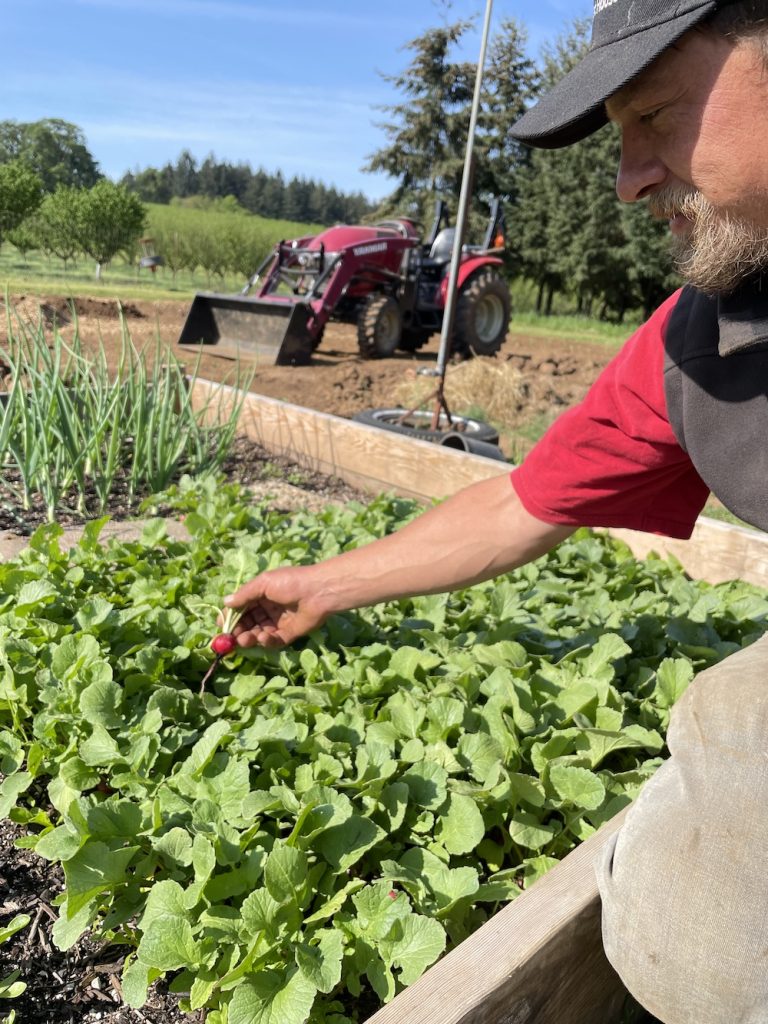
The first crop of radishes was sent to Blanchet House to be used for meals.
Blanchet Farm is blessed with 62 acres in Carlton, and we strive to be thoughtful stewards of the land. This means working to improve current practices as well as implementing small-scale sustainable agriculture techniques.
Permaculture and Sustainable Practices
Looking ahead, Blanchet Farm is establishing a perennial foodscape in partnership with Edible Landscapes of Yamhill County. The design will be guided by the permaculture ethics of Earth care, people care, and future care.
In a permaculture food forest plants work together in tree guilds to help each other grow and thrive. The fruits and vegetables planted will return year after year and are low maintenance, so the crops will be self-sustaining and provide for current and future residents.
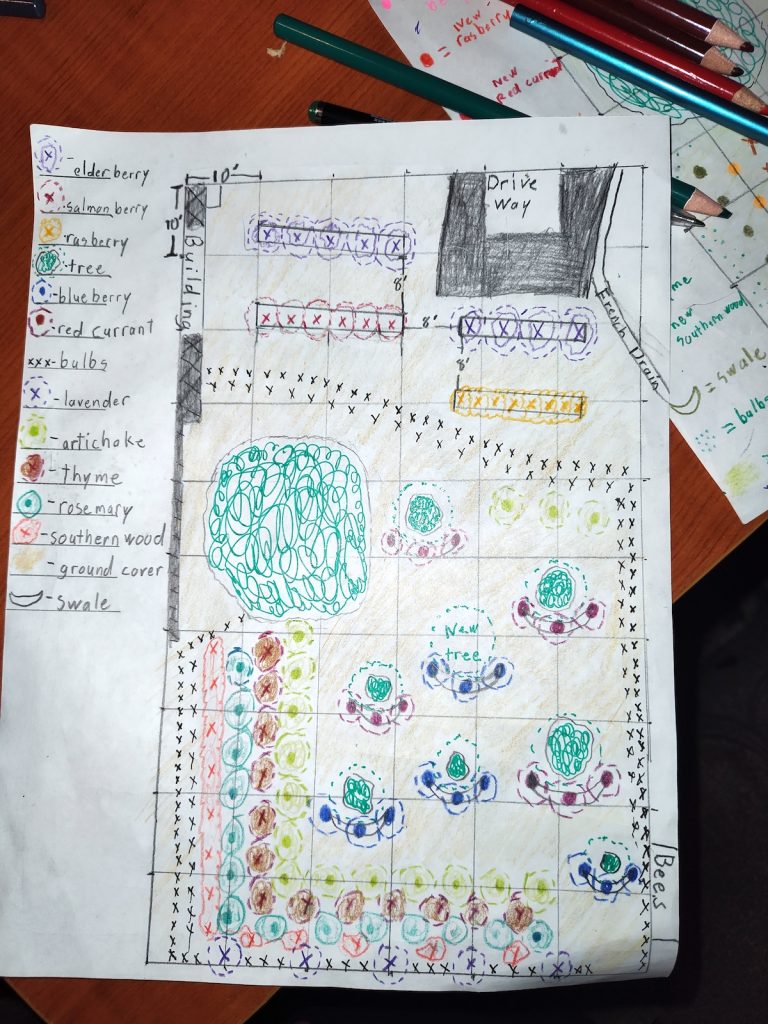
James Vander Meide and Vicki Gunn of Edible Landscapes collaborated on the design for the Blanchet Farm food forest design. Both individuals have certificates in permaculture design.
Additionally, employing conservation best practices results in rainwater retention and erosion control. Soil-building methods, such as thoughtful use of companion plants, mulch, and cover crops, lead us into a regenerative system that not only feeds people but helps heal the earth.
“On the human side, the data is clear that gardening has a host of therapeutic benefits. The people working in this food forest will see mental, emotional, and social regeneration. We are thrilled to collaborate with Blanchet Farm to bring this food forest to life,” writes Charlene Doland, the president of Edible Landscapes.
Ultimately, with the Blanchet Farm garden and food forest, we hope to nurture and enrich the lives of our residents while cultivating a healthier landscape for years to come.
Ways to Support Blanchet Farm’s Gardening Initiatives
- Visit the McMinnville Farmers Market. Residents will be harvesting crops from the garden to sell at the Blanchet Farm booth on May 29, June 26, and July 24.
- Donate plant starts for the food forest. Email Gabby at gthuillier@blanchethouse.org for the plant list.
- Email Michael at mseid@blanchethouse.org to inquire about group volunteer opportunities at the farm.














